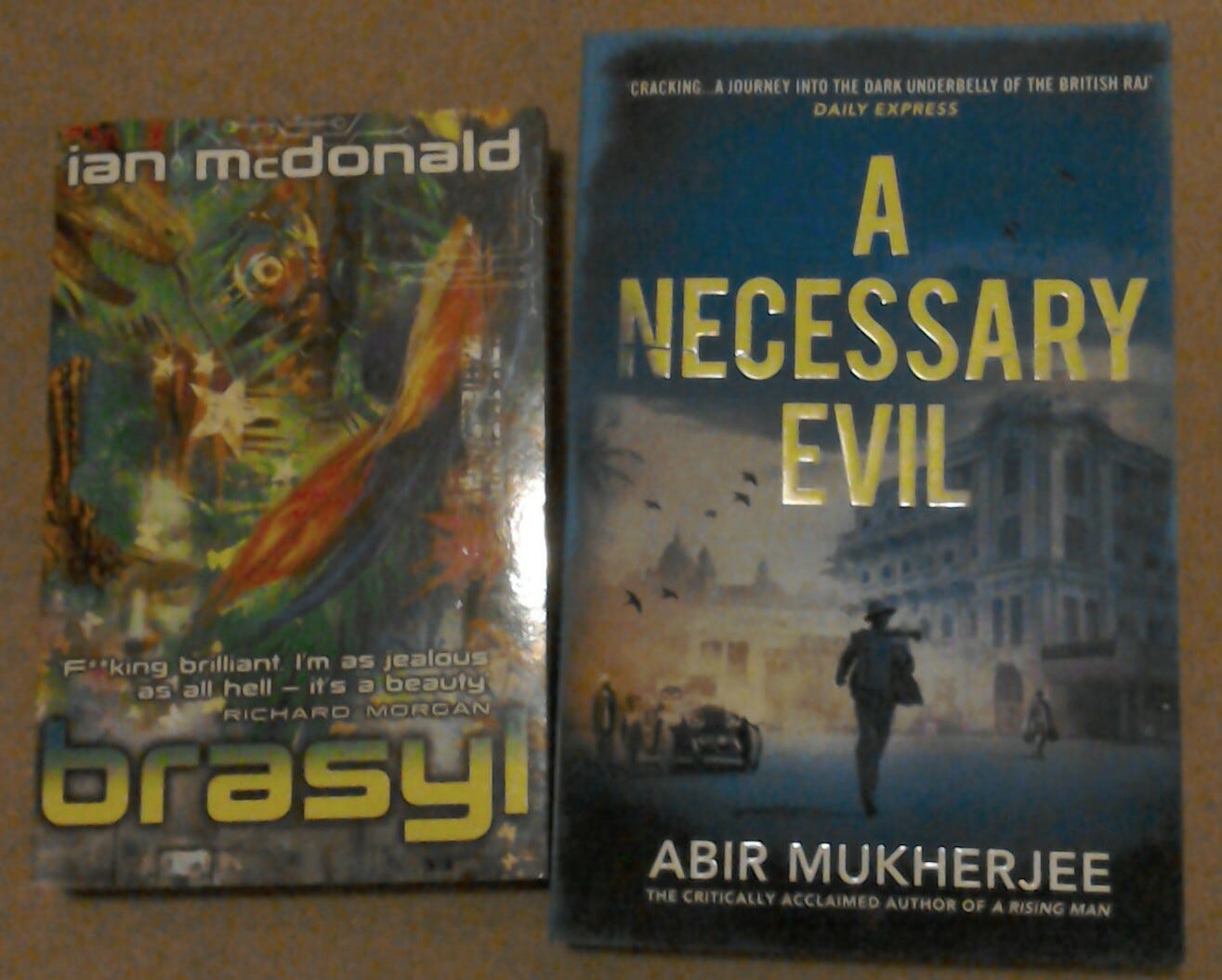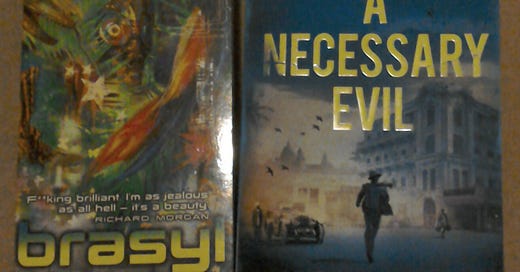Stories of empire

Coincidentally, the first two novels I read in 2018 were both tales of empire, though from quite different perspectives. One was the Portuguese empire as seen through the prism of science fiction, in Brasyl by Ian McDonald. The other was the British empire via crime fiction in India, in A Necessary Evil by Abir Mukherjee. I recommend them both.
Brasyl had an interesting structure, within each chapter there were three sections set in 1732, 2006 and 2032 respectively, in three different parts of Brazil. It had slavery (of different types), stratified societies, football, religion, and quantum mechanics running through everything, and I enjoyed it and would recommend it to anyone who likes both historical fiction and SF (because most of the 1732 strand reads as straight historical fiction). The book was peppered with non-English words and phrases, which added a flavour of Brazil but I felt like my reading speed was unusually slow because of it (and not everything was translated in the glossary at the end). The more I read, the more I realised how little I know about Brazil; I had no idea if historical events or people were real or not, and I found myself wishing I'd watched the programme I seem to recall Michael Palin making about Brazil a few years ago. I spent a while on Google maps dashing about the country though, so maybe I learnt something. I love a book that makes me go find out more in some way.
Abir Mukherjee was one of the writers on a panel at the Penguin WriteNow insight day I went to last September in Newcastle. I chatted to him a bit during that day, he seemed both thoughtful and entertaining, and I liked the sound of his crime series so I made sure I picked up one of the goodie bags that had his latest novel in it. That book was A Necessary Evil, which follows on from A Rising Man (which I've yet to read) and is set in India in 1920. Captain Sam Wyndham of the Imperial Police, and his Sergeant Surendranath ('Surrender-not') Banerjee witness the assassination of the heir to the throne of one of the states they have no authority in. But he was assassinated within their jurisdiction, and Banerjee did go to school with him, so they go to his funeral, blunder into a political situation they don't fully grasp, and race to find the truth. Short chapters, flowing narrative voice with a dash of disrespectful humour, and a nicely flawed main character; I was hooked within a couple of pages and sped through it. Particularly good on complexity (characters and situations neither one obvious thing nor the other), and the British in India failing to (or refusing to) understand the culture they're surrounded by, and being tripped up by preconceptions.



